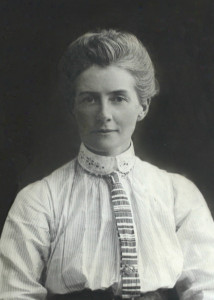The Nurse Who Inspired Britain
Edith Cavell became an unlikely heroine of the First World War when she helped hundreds of wounded British soldiers escape their German captors.
The nurse, who briefly trained at St George’s Hospital, settled in Belgium where she was a Red Cross hospital matron by the time hostilities broke out in 1914.
The Germans warned of the dire consequences facing anyone caught sheltering English and French troops and grew suspicious when the number of soldiers entering the hospital didn’t tally with the number of deaths or discharges.
Edith, 50, treated German and Allied soldiers with equal consideration but considered it her duty to shelter and aid the escape of British troops.
It began when two soldiers cut off from their unit found their way to the hospital and asked for shelter.
Others followed and an escape route was quickly established with soldiers directed to a series of safe houses across occupied Belgium and onto eventual freedom in neutral Holland.
The secret police arrested and charged Cavell with assisting the enemy and, after a two day trial, sentenced her to death by firing squad.
The news was met with widespread condemnation and frantic deputations by the British Government asking for her sentence to be commuted to jail.
The Germans refused and Edith was stoically resigned to her fate saying: “I want my friends to know that I willingly give my life for my country. I have seen death so often that it is not strange or fearful to me.”
Her plight made front-page news around the world and the Germans hurried through her execution less than 11 hours after final sentencing.
The attending priest later praised her for ‘being brave and bright to the last’ and noted she chose to wear her nurse’s uniform.
The British Government seized on the opportunity to launch a prolonged propaganda campaign and Edith’s story was told and retold in newspapers and periodicals around the world as well as appearing on billboards, posters and stamps.
She became one of the most highly publicised casualties in a war that claimed 37 million lives by the time the guns were finally silenced in 1918.
Her name lives on in numerous memorials, street names, parks, nursing homes and hospital facilities like the Edith Cavell Ward at St George’s Hospital.


